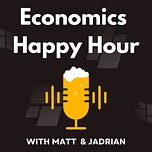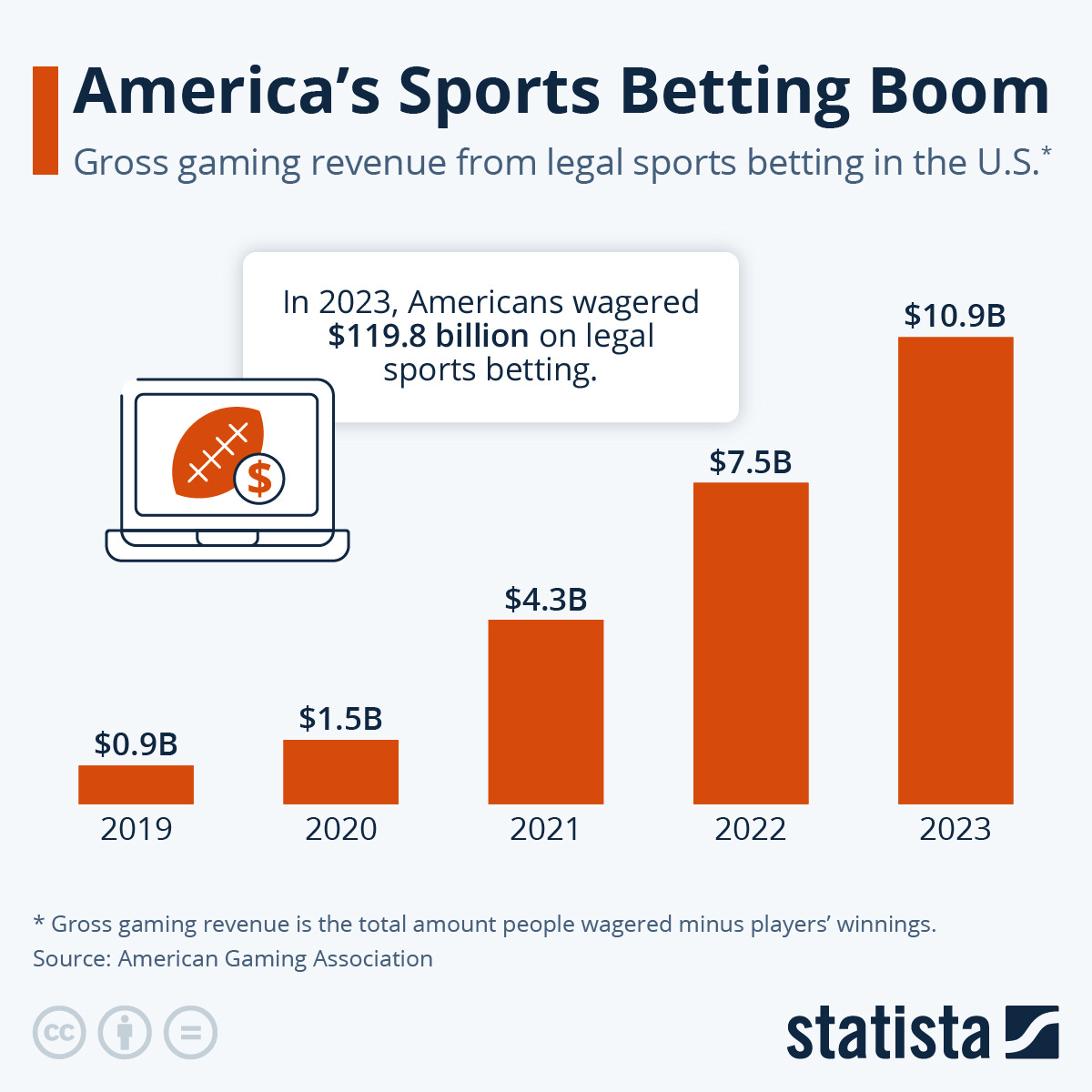Dive into the economic concepts that have helped with the recent explosion of sports betting in the United States. Explore how sportsbooks set odds, the role of information in creating an edge, and why betting markets share some similarities with prediction markets. We briefly unpack the effects of the 2018 repeal of PASPA and discuss how technology has transformed gambling behavior. This week’s conversation highlights both the fun and complexity of modern sports betting.
In this episode, we discuss:
How sports betting odds are set and why sportsbooks aim to balance bets.
Why some bettors can gain an edge and how information affects outcomes.
The economics behind parlays, money lines, and house margins.
How the 2018 Supreme Court ruling changed the legal landscape.
And a whole lot more!
Catch up on some old episodes:
You can also listen to us on Google Podcasts, TuneIn Radio, and Apple Podcasts. If one of these is your go-to podcast service, be sure to rate us and subscribe!
Watch this episode on YouTube:
Some show notes:
We recorded this week’s episode right before Game 7 of the NBA Finals and right after recording our episode on Bobby Bonilla Day. We decided to stick with the sports theme, but our drinks have changed. Eric opted for a glass of water to combat the heatwave sweeping across most of the U.S. at the time, while Jadrian went with Best Day Brewing’s Sea Salt and Lime non-alcoholic cerveza. Matt snagged a Gorb Hazy IPA from Oliphant Brewing on his recent trip to Minnesota.
Over the past few years, the amount of ad space dedicated to gambling sites has increased dramatically. That’s due in part to the repeal of PASPA in 2018, which made it easier for states to legalize sports gambling. We brought on our friend Eric Dunaway from Wabash College to help provide some insight into how the sports gambling industry ballooned from underground operations and Nevada-only betting to nationwide, app-based access that includes bets as small as a dollar.
Sports gambling is different from traditional gambling in a variety of ways, but perhaps the most interesting to economists is that the outcome of the game is not based on probabilities like traditional casino games. Because of how often blackjack hands are played or roulette wheels are spun, it’s a lot easier to estimate the expected win probability for any given bet. That’s not possible with sports games because we only ever see one observation. As a result, sportsbooks are more interested in “setting lines” rather than trying to predict the outcome of a game.
Eavesdrop on some sports gamblers, and there’s no doubt you’ll hear them reference a money line: the initial distinction between favorites and underdogs. Even one of the simplest bets is structured in a way that ensures a profit for the casinos by baking in a “vig” regardless of the outcome. While house edges are fixed in games like roulette, sports betting allows for subjective analysis and the potential for informed bettors to gain an edge.
The second half of this week’s episode focused on the behavioral economics aspects of sports gambling, including how fans may bet emotionally on their teams and the ways sportsbooks use boosts and promotions to attract money. Sportsbooks rely on more than just math; they also leverage psychology. Many apps use flashy celebration graphics and real-time win tracking to create a sense of excitement, while quietly downplaying losses. These design choices can make betting feel more like a game than a financial risk.
Perhaps more concerning, sportsbooks are now partnering with some universities to present gambling as a way to support college athletics. While framed as sponsorship, we’re not entirely sure it’s appropriate to normalize betting among young adults with blurred lines between supporting your school and engaging in risky financial behavior. Perhaps the one plus side of the rapid growth in sports gambling is that we have a lot of young people passionate about statistics. Let’s hope that passion extends to more responsible financial decisions.
This week’s pop culture references:
In Back to the Future Part II, the antagonist steals the Time Machine and delivers a sports almanac to his younger self in 1955. With decades of future game outcomes in hand, he builds a gambling empire by always betting with perfect information. The scene ties directly into this episode’s theme: if you know more than the market, even slightly, you can win big.
In Casino, Robert De Niro plays a handicapper who works for the mob, helping them set accurate betting lines on sports events before eventually taking over a casino. His role shows how valuable expert analysis and insider knowledge can be when money is on the line.
Matt highlights Nate Silver’s new book, On the Edge, where Silver reflects on his own attempt to become a professional NBA gambler. Despite his strong background in statistics and data, he admits he struggled to profit consistently. It’s a good reminder that even the smartest bettors often fall short against efficient markets and razor-thin margins.
Matt also brings up an episode from Season 4 of The Wire, where a retired police officer becomes a teacher and uses gambling examples to teach math. By tapping into something his students care about, he gets them to engage with probability and numbers. For better or worse, sports betting is making statistics exciting for a new generation.




















Share this post